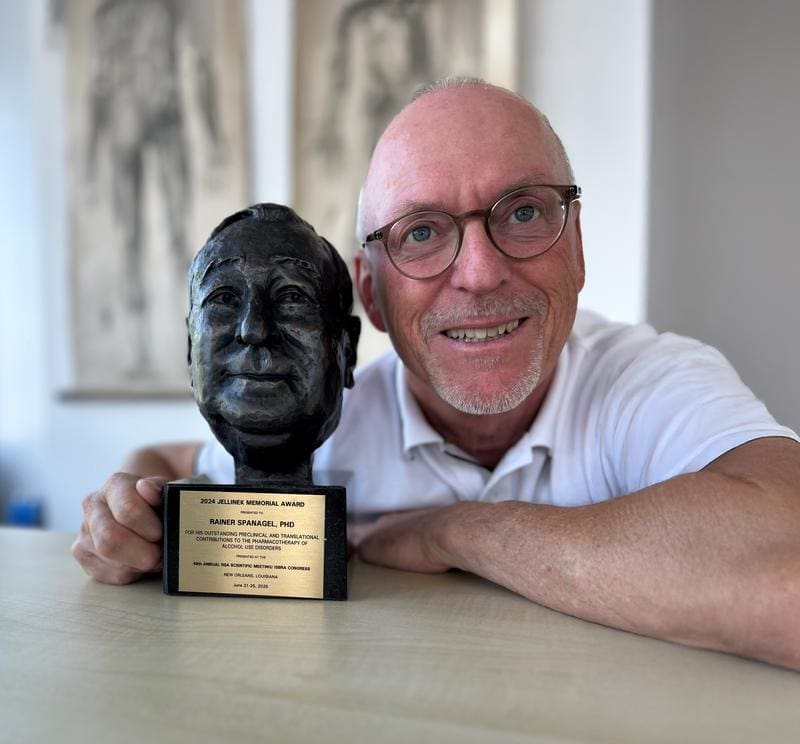Jellinek Research Prize goes to Rainer Spanagel
For the second time, the highest award in addiction research has gone to a researcher at the Central Institute of Mental Health (ZI) in Mannheim. Prof. Dr. Rainer Spanagel, Scientific Director of the Institute of Psychopharmacology at the ZI, received the award in June at the Research Society on Alcohol (RSA) congress in New Orleans for his outstanding achievements in the preclinical and translational development of pharmacotherapies for people with alcohol addiction.
For over 30 years, Spanagel has dedicated himself to researching addictive disorders, in particular alcohol addiction. As spokesperson for the Transregio TRR265 research network funded by the German Research Foundation, he focuses on deciphering the causes of alcohol addiction and identifying risk factors. The aim is to improve treatment methods and strengthen preventative approaches. His work aims to develop innovative therapies that help those affected to overcome their addiction.

The Central Institute of Mental Health (ZI) stands for internationally outstanding research and pioneering treatment concepts in psychiatry and psychotherapy, child and adolescent psychiatry, psychosomatics and addiction medicine. The clinics of the ZI guarantee psychiatric care for the population of Mannheim. Mentally ill people of all ages can rely on the most advanced treatments based on international standards of knowledge at the ZI. Educating people about mental illness, creating understanding for those affected and strengthening prevention is another important part of our work. The CIMH is one of Europe’s leading institutions for psychiatric research and is a site of the German Center for Mental Health. The CIMH is institutionally linked to the University of Heidelberg through jointly appointed professors from the Mannheim Medical Faculty and is a member of the Health + Life Science Alliance Heidelberg Mannheim.
Editorial office: X-Press Journalistenbû¥ro GbR
Gender note. The personal designations used in this text always refer equally to female, male and diverse persons. Double/triple references and gendered designations are avoided in favor of better readability.




